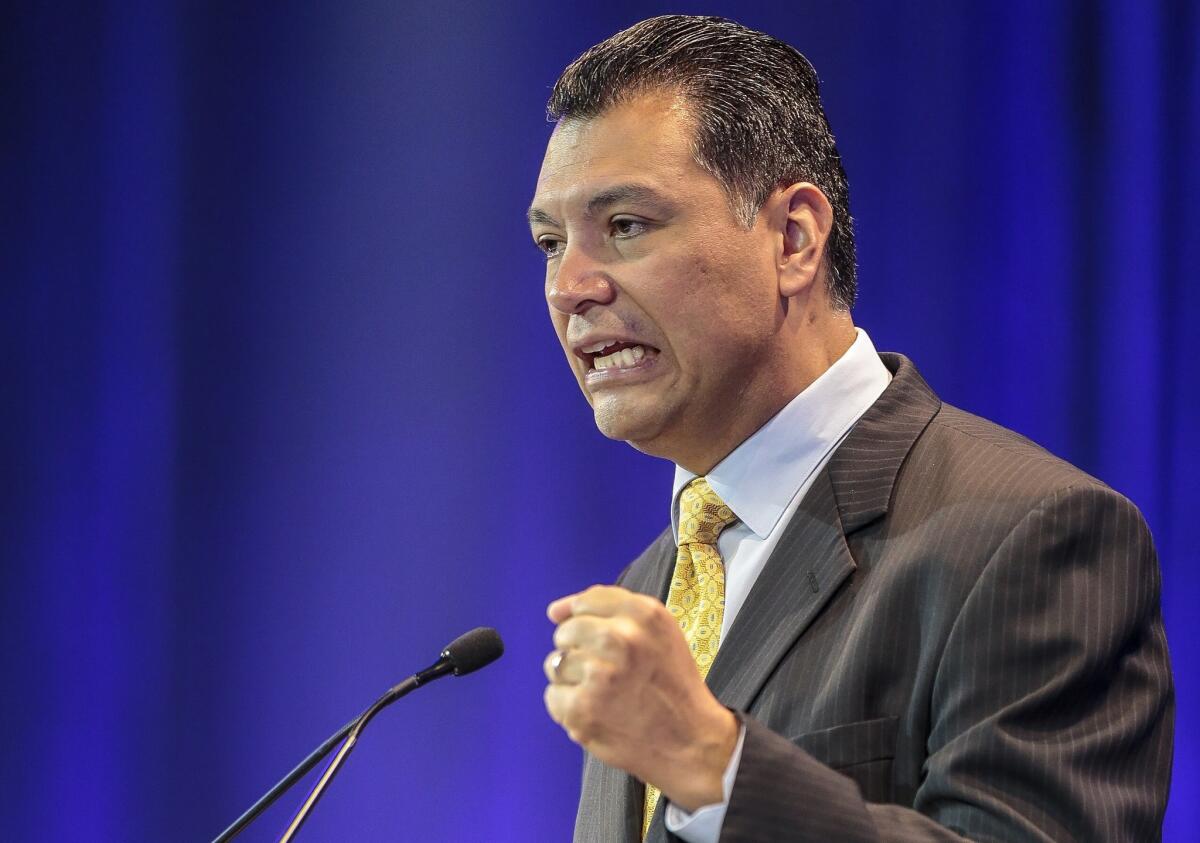Editorial: Felons and voting rights

California Secretary of State Alex Padilla greets supporters at the California Democrats State Convention in Anaheim in May. Padilla’s recent decision restores voting rights to thousands of former inmates who are serving out their sentences under county supervision.
- Share via
There is such misunderstanding about the voting rights of convicted felons that recent news about a California policy change may come across as far more sweeping and groundbreaking than it actually is. In fact, this state already restores voting rights automatically to felons upon completion of their sentences. And that’s as it should be. If only it were that way in other states, too many of which make it as hard as possible for people to reenter society as responsible citizens even after they have paid their debt. Eleven states make revocation of voting rights permanent, even after the sentence has been fully served, unless the former offender successfully petitions a court, the governor or a special board.
People convicted of felonies suffer a temporary loss of rights and liberties as part of their punishment, the most obvious example of which is having to live in jail or prison for a time. Voting rights are generally suspended during that period as well — except in Maine and Vermont, which allow, even encourage, felony inmates to vote.
In California, imprisoned felons can’t vote. When they are released, typically after serving 50% of the term handed down, their sentences generally continue — or rather, they used to — for up to a year in their home communities under the supervision of state parole agents. During that time, many of their civil rights remain suspended, including their right to vote. That interim period, if handled correctly, allows the former prisoner the opportunity to demonstrate that he can safely return to society, hold a job and live responsibly. When parole expires, the rights that were suspended — including the right to vote — are restored.
Things changed for many felons beginning in 2011 under the program known as public safety realignment. People convicted of certain nonviolent crimes serve their time behind bars in county jails instead of state prison, and on release they are supervised by county probation officers instead of state parole agents. So is it still considered parole? California Secretary of State Alex Padilla on Tuesday said no, and his decision allows thousands of former inmates to begin voting while their sentences are still running.
Padilla’s action raises the question of just when a sentence should be deemed completed. It’s not clear that it makes sense to allow that group to vote while keeping the restriction in place for ex-inmates serving old-style parole. Either rights are restricted during the supervision period or they are not. And perhaps they shouldn’t be, for anyone, if voting is one part of reentry into society.
Follow the Opinion section on Twitter @latimesopinion and Facebook
More to Read
A cure for the common opinion
Get thought-provoking perspectives with our weekly newsletter.
You may occasionally receive promotional content from the Los Angeles Times.









